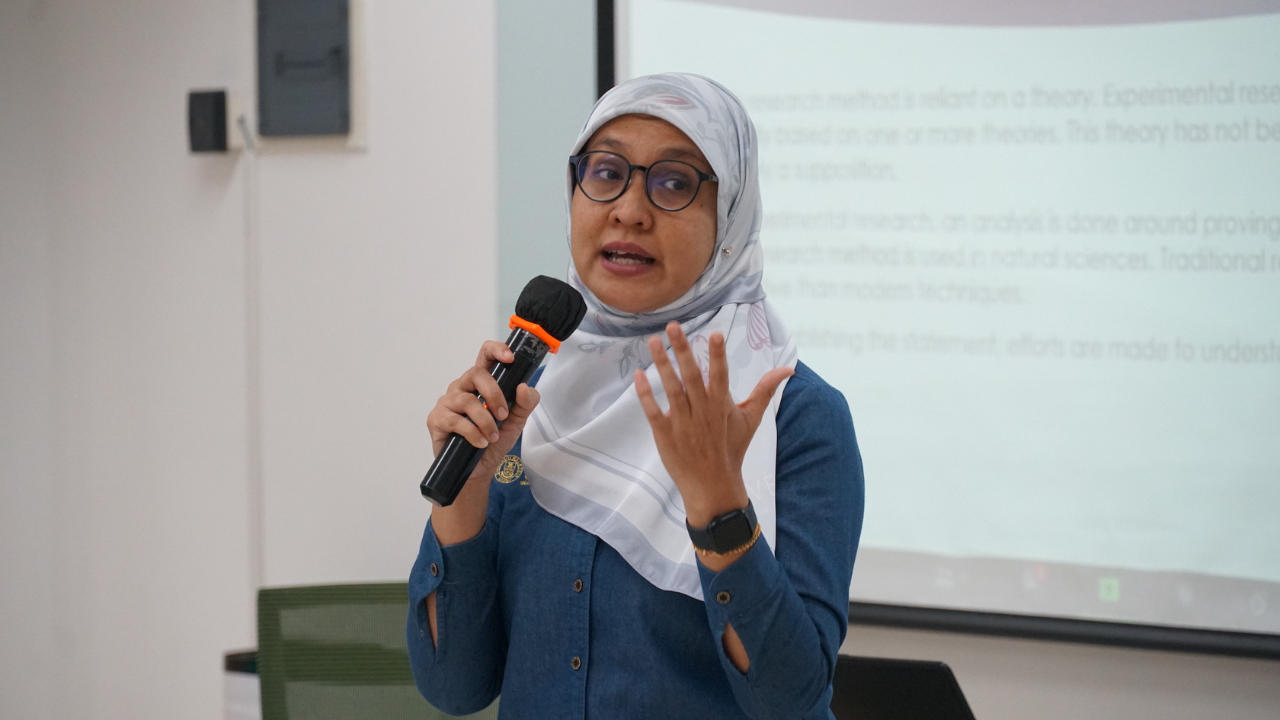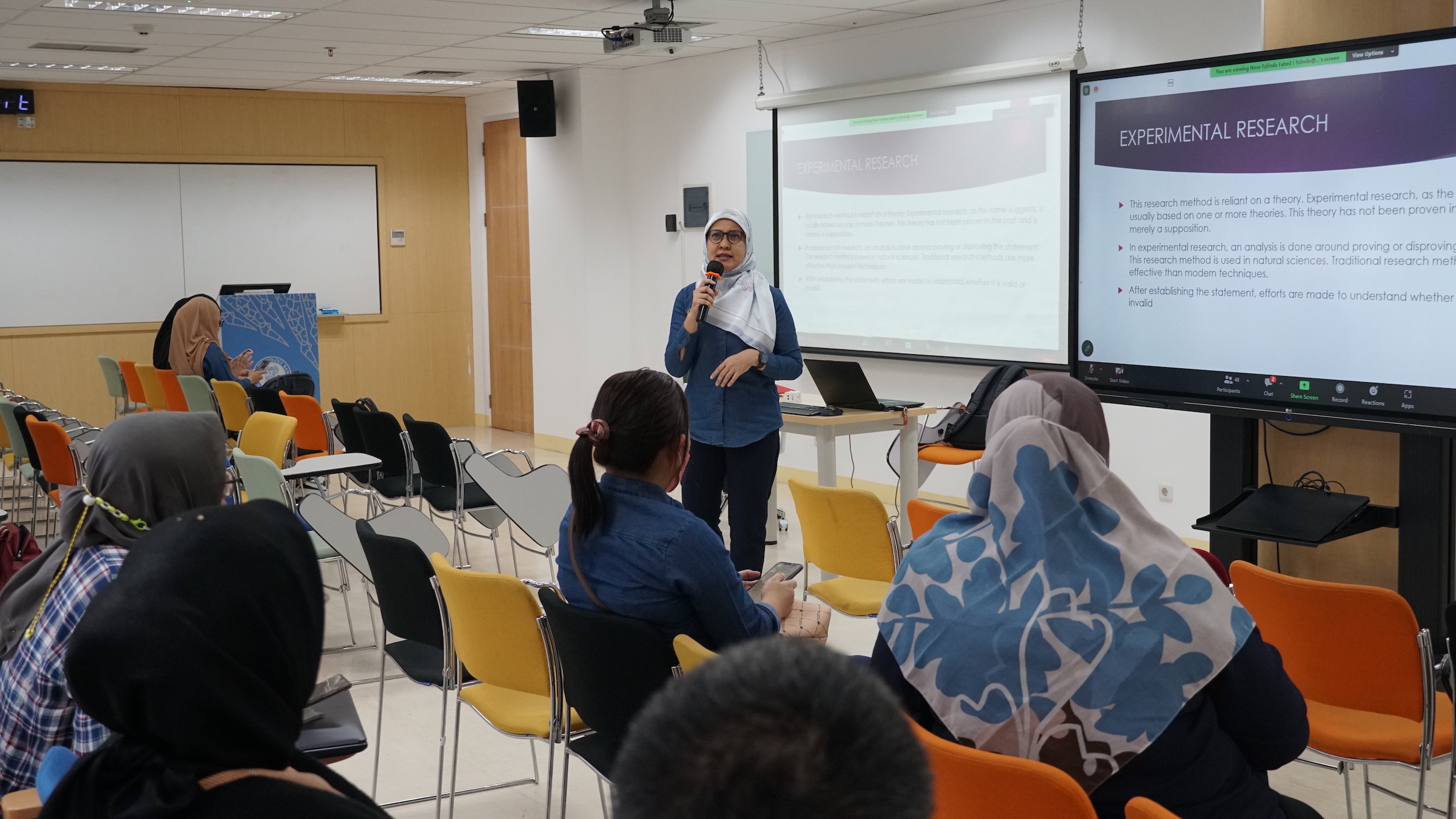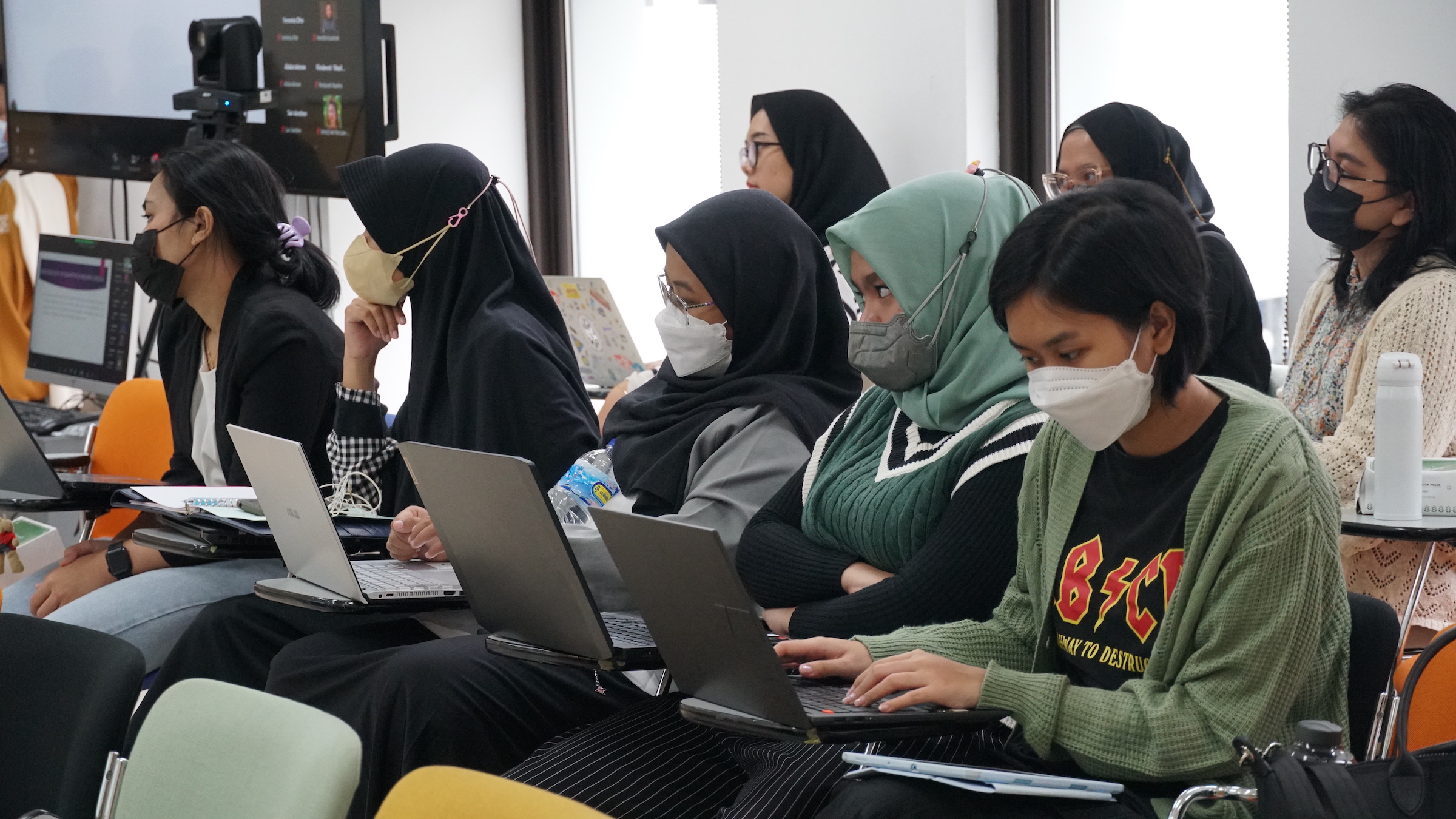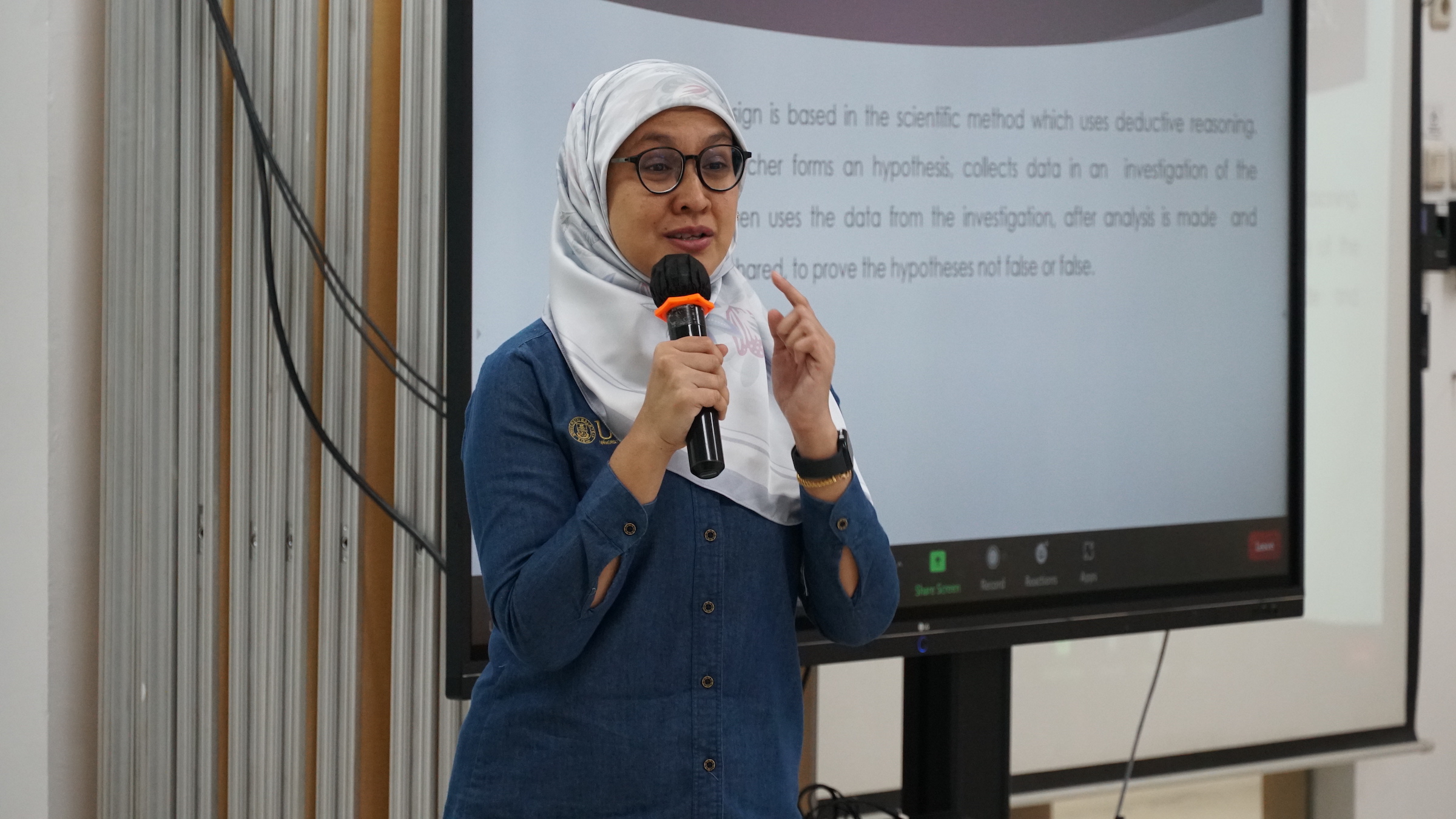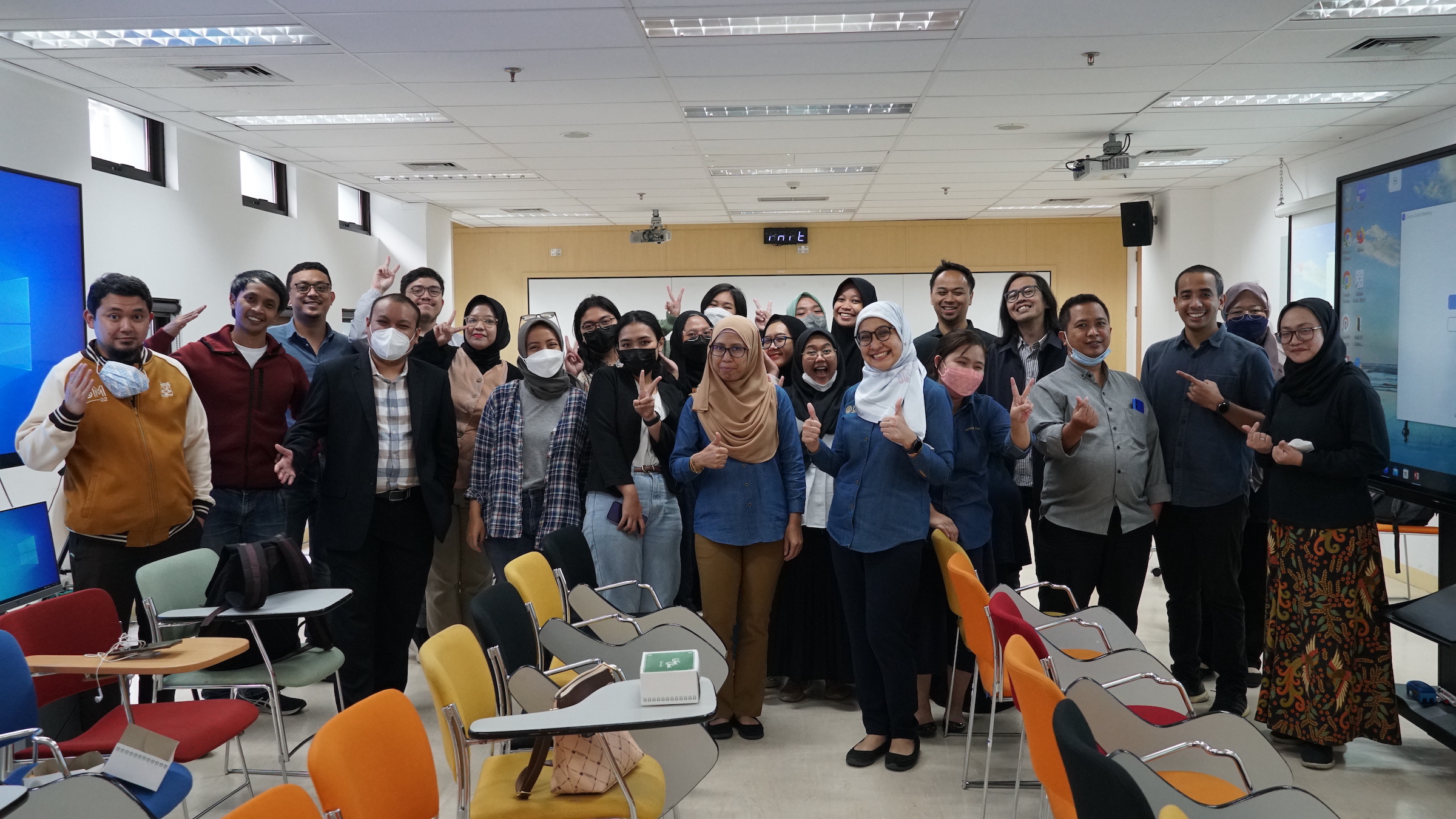Mixed method approach has been widely used. Mixed methods research combines and integrates qualitative and quantitative research methods in one research study, involving the collection and analysis of qualitative and quantitative data.
These methods can better understand a phenomenon and answer research questions. Quantitative methods are developed to test and validate hypotheses, make generalizations about phenomena and answer how many, how often, causal relationships, and numerical forms. On the other hand, qualitative methods provide in-depth and rich information, explore new phenomena, document participants, and write in textual form.
The application of the mixed method was conveyed by two lecturers from Universiti Malaysia Sabah (USM), Dr. Noor Fzlinda Fabeil and Dr. Izyanti Awang Razli. Both took the opportunity to attend a seminar entitled “Multi-Method Social Science: Combining Qualitative and Quantitative Tools,” held by the Master of Science Management (MSM) and Doctoral Science Management (DSM) Lounge of SBM ITB at the SBM ITB Building, Tuesday (31/1 ).
This event is specifically aimed at MSM and DSM students of SBM ITB. The offline and online participants were enthusiastic and engaged with the speakers. Universiti Malaysia Sabah students also took part in online seminars.
According to Dr. Noor and Dr. Izyanti, students or researchers must first understand the reasons for using the mixed method. The first is complementarity, namely seeking elaboration, illustration, improvement, and clarification of results from one method with findings from other methods. Second, for development, the ethical researchers use the results of one method to help develop or inform the uses of another. Third, initiation, namely finding paradoxes and contradictions that lead to research questions. Finally, expansion is trying to expand the breadth and range of inquiry using different methods for different components.
Mixed-methods research usually uses a pragmatist paradigm. Pragmatism is an emerging research paradigm in which the practical consequences and effects of concepts and behavior are important components of meaning and truth. This research paradigm supports using qualitative and quantitative inquiry methods to generate evidence to support best practices.
At the end of the event, Dr. Noor Fzlinda Fabeil and Dr. Izyanti Awang Razli explained that there is no better or easier research method, whether it is qualitative, quantitative, or mixed-methods. The main concern is whether the technique answers our research questions.




